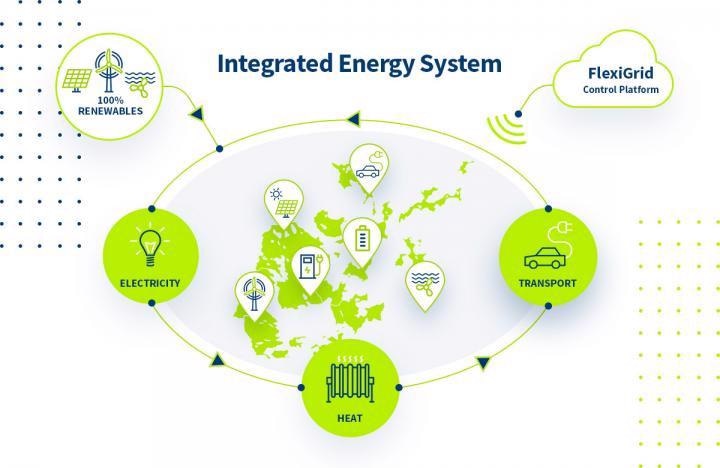May 3 2021
On a global scale, governments have expedited their objectives toward effective mitigation of climate change.
 Integrated Energy System Illustration. Image Credit: Heriot-Watt University.
Integrated Energy System Illustration. Image Credit: Heriot-Watt University.
In this fight to handle the complicated and universal problem of climate change, what is evident is that no single technology or stakeholder can power the entire, timely decarbonization that is needed by the world and its people.
Thus, under this global energy transition, there is an unparalleled rise in decarbonization investments along with new levels of accessibility to both markets and energy systems. Therefore, the main research question is how well to comprehend and maximize the value proposition for various stakeholders.
As a result of the demand to fast-track decarbonization and to guarantee that this is an inclusive energy transition together with social justice and equity at its center, citizens need to comprehend the dynamics and interdependencies among economics, people, and technology.
Within the Smart Systems Group at Heriot-Watt University, a research group has been examining how Game-theoretic models could constitute a potential method to investigate tactical interactions between self-interested private energy system investors.
In this study, the researchers developed and assessed a game-theoretic framework to analyze planned interactions between profit-maximizing players who invest in a storage capacity, renewable generation, and electrical network.
Particularly, the case where grid capacity is designed by a private renewable investor but line access is shared with competing renewable and storage investors has been studies, allowing them to export energy and access demand for electricity.
We model the problem of deducing how much capacity each player should build as a non-cooperative Stackelberg-Cournot game between a dominant player (leader) who builds the power line and renewable generation capacity, and local renewable and storage investors (multiple followers), who react to the installation of the line by increasing their own capacity.
David Flynn, Professor and Founder, Smart Systems Group, Heriot-Watt University
“Using data-driven analysis and simulations, we developed an empirical search method for estimating the game equilibrium, where the payoffs capture the realistic operation and control of the energy system under study,” added Flynn.
The findings achieved as part of this study involve a practical illustration of the basic methodologies, for a real-world grid strengthening project in the United Kingdom. The methodology offers a realistic mechanism to examine investor decision-making and analyze possible tariffs that promote distributed renewable investment, together with sharing of grid access.
The study was guided by Professor Flynn’s Smart Systems Group at Heriot-Watt University and financially supported by the UKRI Responsive Flexibility, ReFLEX, whole system demonstrator project, and the UK’s EPSRC National Centre for Energy System Integration.
Journal Reference:
Andoni, M., et al. (2021) Analysis of Strategic Renewable Energy, Grid and Storage Capacity Investments via Stackelberg-Cournot Modelling. IEEE Access. doi.org/10.1109/ACCESS.2021.3062981.